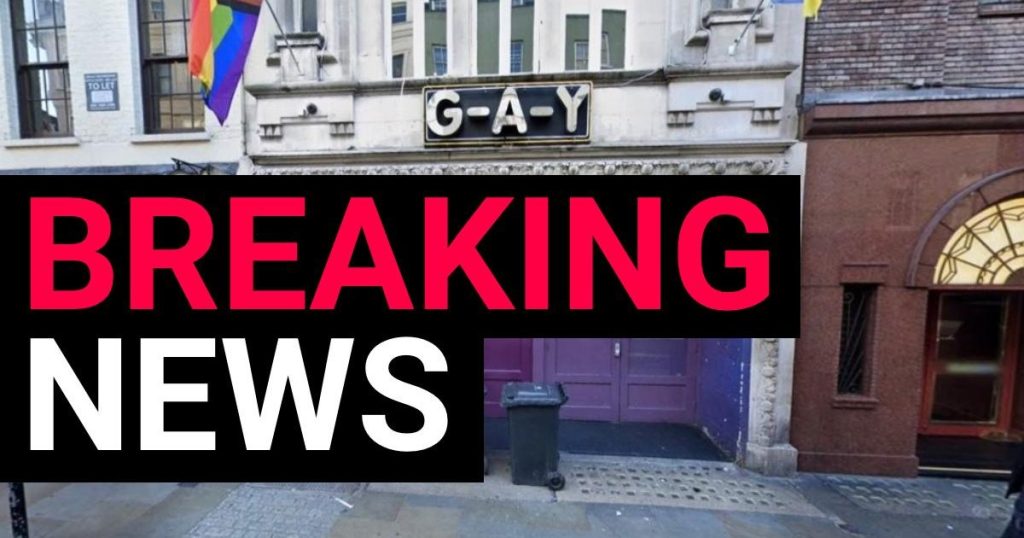The Closure of G-A-Y Bar: A Symptom of Soho’s Decline?
G-A-Y Bar, a cornerstone of London’s LGBTQ+ scene, is being put up for sale, signaling a potential shift in the landscape of Soho. Owner Jeremy Joseph cites a confluence of factors driving the decision, primarily the increasing difficulty of operating a nightlife venue in the face of stringent licensing restrictions and vocal opposition from local residents, often referred to as "NIMBYs" (Not In My Backyard). Joseph argues that these challenges, coupled with the ongoing cost of living crisis impacting the hospitality sector, have made it unsustainable to continue operating the bar. He expresses a sense of disillusionment with the perceived lack of support for hospitality businesses, particularly LGBTQ+ venues, and laments the loss of Soho’s vibrant and queer identity.
The closure of G-A-Y Bar follows the temporary shutdown of Heaven, another prominent LGBTQ+ nightclub owned by Joseph. The temporary closure stemmed from serious allegations against a bouncer, further compounding the challenges faced by Joseph and highlighting the vulnerabilities of nightlife establishments. While Heaven has since reopened under strict conditions, the incident undoubtedly contributed to the overall strain on Joseph’s businesses and the decision to sell G-A-Y Bar.
Joseph’s decision reflects a broader trend of LGBTQ+ venues facing closure in recent years, often attributed to rising rents, changing demographics, and the increasing popularity of online social spaces. The closure of G-A-Y Bar, a long-standing institution, raises concerns about the erosion of safe and inclusive spaces for the LGBTQ+ community and the potential loss of cultural heritage within Soho.
Soho’s Transformation: From Vibrant Hub to Contested Space
Soho’s historical identity as a hub for counterculture, artistic expression, and LGBTQ+ life is being challenged by ongoing gentrification and evolving community dynamics. The area has witnessed a shift towards higher-end retail and residential developments, potentially contributing to increased tensions between residents and nightlife establishments. The "NIMBY" phenomenon, characterized by residents opposing developments or activities they perceive as disruptive, plays a significant role in shaping licensing decisions and impacting the viability of venues like G-A-Y Bar.
The clash between Soho’s historical character and its evolving identity raises questions about the balance between preserving cultural heritage and accommodating changing community needs. The licensing restrictions, often aimed at mitigating noise complaints and public disorder, can inadvertently stifle the very vibrancy that draws people to Soho in the first place. The situation underscores the complex interplay between urban development, community interests, and the preservation of cultural spaces.
The Future of LGBTQ+ Spaces in a Changing Landscape
The closure of G-A-Y Bar prompts a broader discussion about the future of LGBTQ+ spaces in a rapidly changing urban environment. As traditional venues face increasing financial pressures and regulatory hurdles, the LGBTQ+ community must explore alternative ways to create and maintain safe and inclusive spaces. Online platforms and community-led initiatives may play an increasingly important role in fostering connection and providing support, but the loss of physical spaces like G-A-Y Bar represents a significant blow to the community’s tangible presence within the city.
The challenges faced by LGBTQ+ venues are not unique to Soho or London; similar trends are observed in other major cities around the world. Rising property values, changing demographics, and evolving social patterns contribute to the closure of these vital spaces. Preserving LGBTQ+ spaces requires a multifaceted approach, including community advocacy, policy interventions, and creative solutions that adapt to the changing urban landscape.
Navigating the Complexities of Urban Development and Community Needs
The situation in Soho exemplifies the complex challenges of balancing urban development with the preservation of cultural heritage and community needs. The tension between residents’ desire for tranquility and the vibrancy of nightlife establishments requires careful consideration and negotiation. Licensing restrictions, while intended to address legitimate concerns, can have unintended consequences for businesses and cultural spaces. Finding a sustainable path forward requires open dialogue, compromise, and a recognition of the diverse interests at stake.
The closure of G-A-Y Bar serves as a reminder of the fragility of cultural spaces in the face of economic pressures and evolving community dynamics. The loss of such spaces can have a profound impact on the identity and vibrancy of a neighborhood. Preserving these spaces requires a collective effort from stakeholders, including business owners, residents, policymakers, and the community at large.
The Importance of LGBTQ+ Venues: Beyond Entertainment
LGBTQ+ venues are more than just places for entertainment; they serve as vital community hubs, providing safe spaces for socializing, networking, and self-expression. For many, these venues represent a refuge from discrimination and a place to connect with like-minded individuals. The closure of G-A-Y Bar represents the loss of not only a beloved venue but also a vital resource for the LGBTQ+ community.
The historical significance of LGBTQ+ venues in providing safe havens and fostering community cannot be overstated. These spaces have played a crucial role in the fight for LGBTQ+ rights and continue to be essential for individuals seeking acceptance and belonging. The closure of such venues underscores the need for ongoing efforts to create and maintain inclusive spaces that cater to the diverse needs of the LGBTQ+ community.











